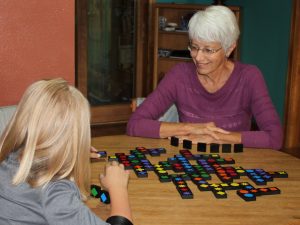Praxis is a Greek word which is used to describe the learned ability to plan and to carry out sequences of coordinated movements in order to achieve an objective. Dys is the Greek prefix ‘bad’ so dyspraxia literally means bad sequential coordination. This term is not commonly heard, but tutors should be aware of it, as dyspraxic tendencies can cause children significant frustration!
A child who has trouble learning skills such as eating with a spoon, speaking clearly, doing up buttons, riding on a bike, walking without bumping walls or people, or handwriting may be described as dyspraxic. The movements which are involved in these activities are skilled movements, which are voluntary and must be learned in sequence. Developmental dyspraxia may be found in children who have no neurological disease.
Such children often develop a very strong dislike for school. Parents may say, “He’s so slow I have to do things for him or we’d never go anywhere.” Teachers may say, “She turns in the messiest papers I’ve ever seen, when she remembers to turn them in at all.” The children themselves may say, “Everyone is always mad at me, but I don’t know why.”
Tutors can help the child understand why they have trouble with certain tasks, how to get better at those tasks, and how to use their strengths to compensate for challenges. Tutors can also assure the student that nothing is wrong with them; they are just still growing!
